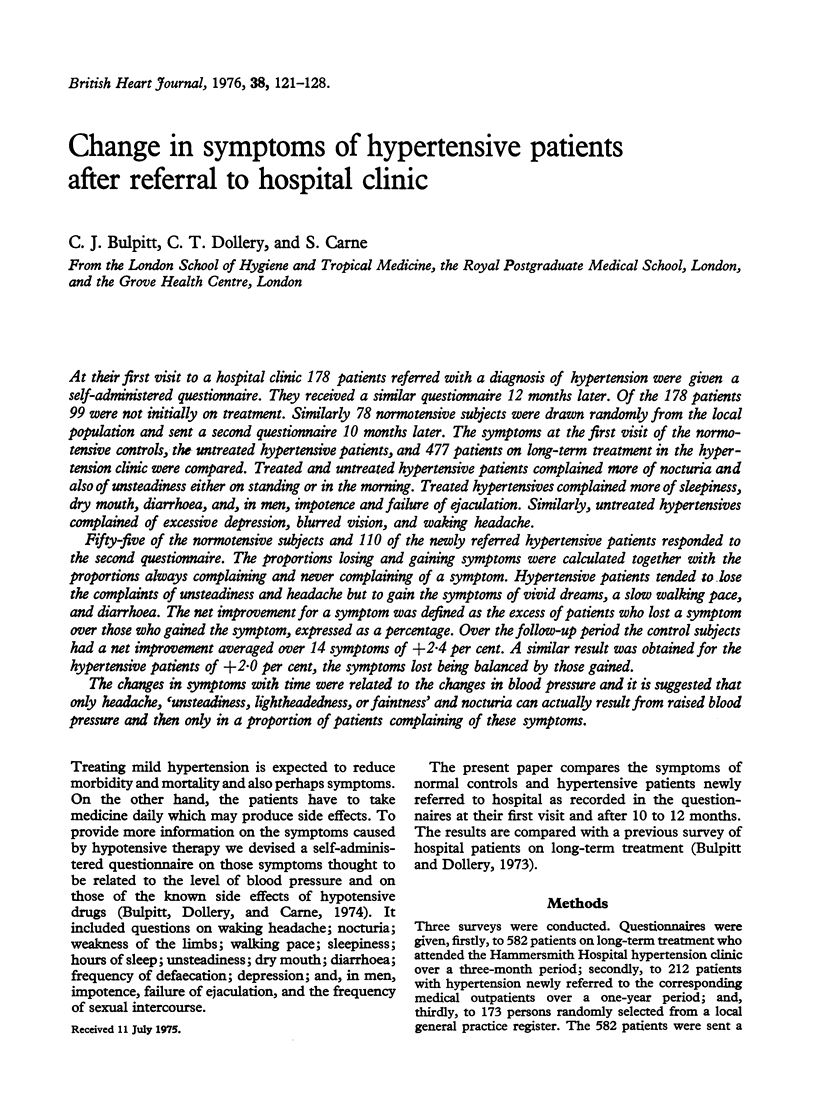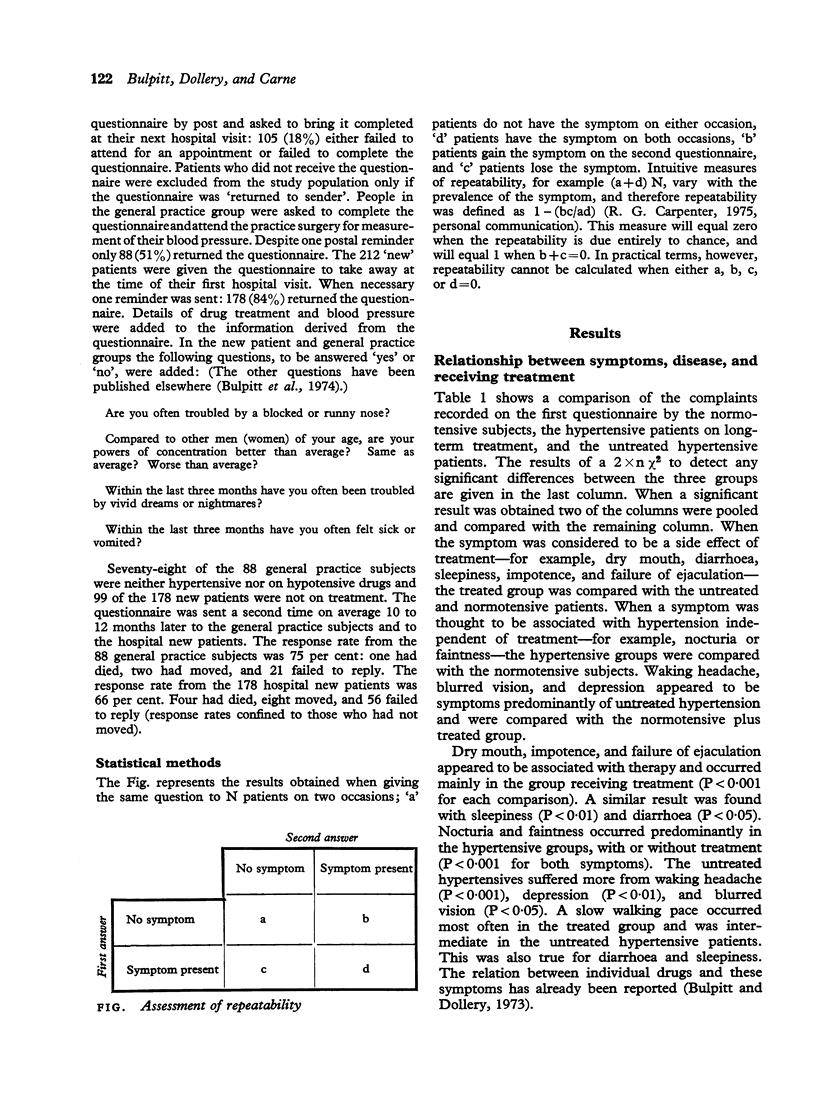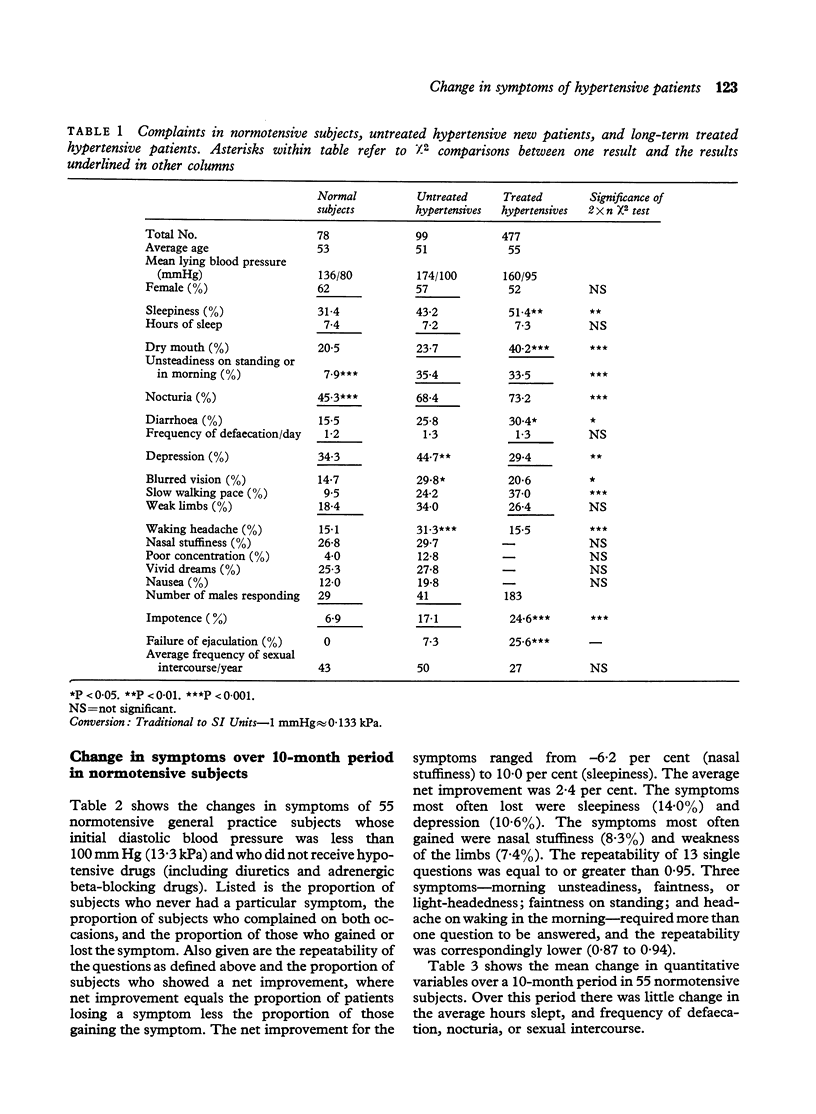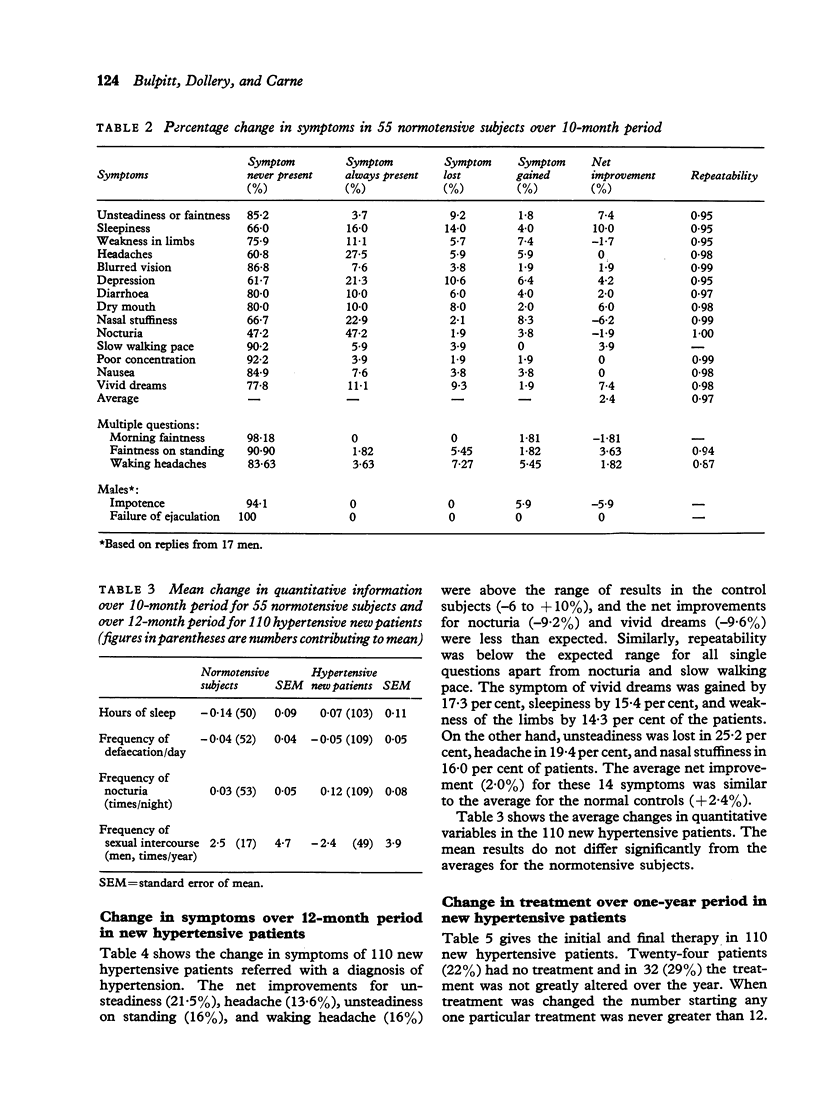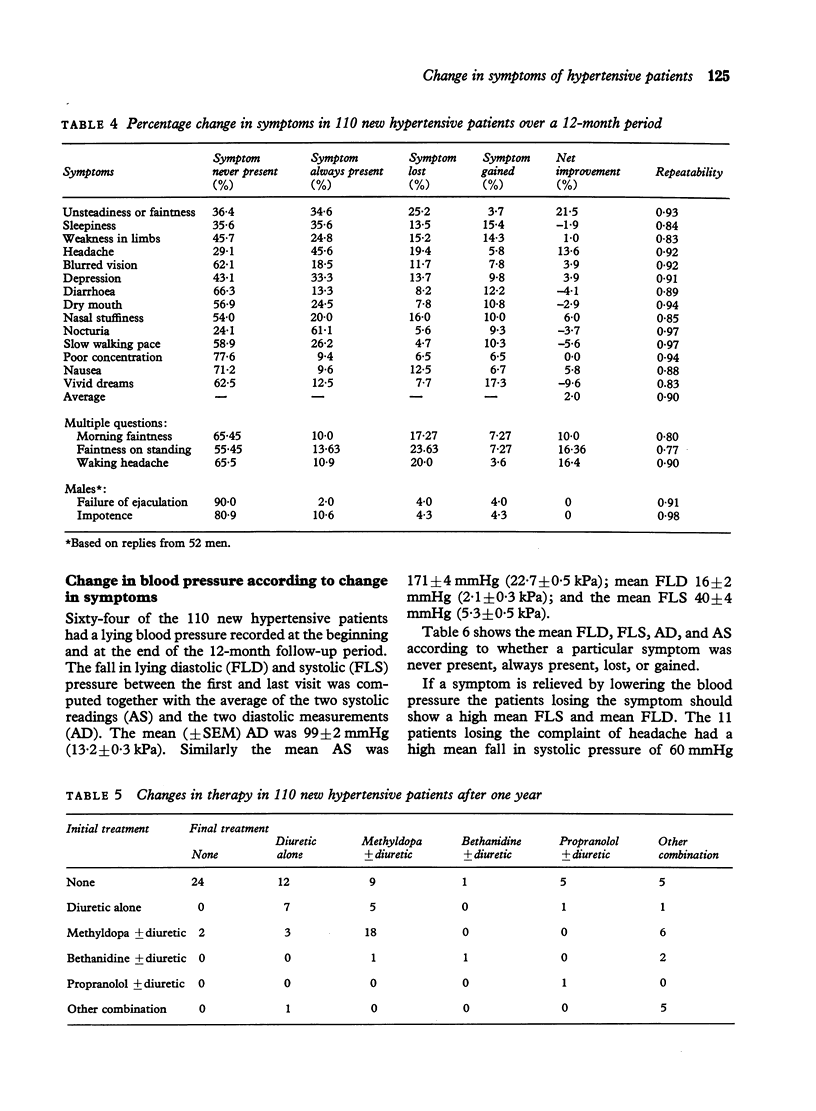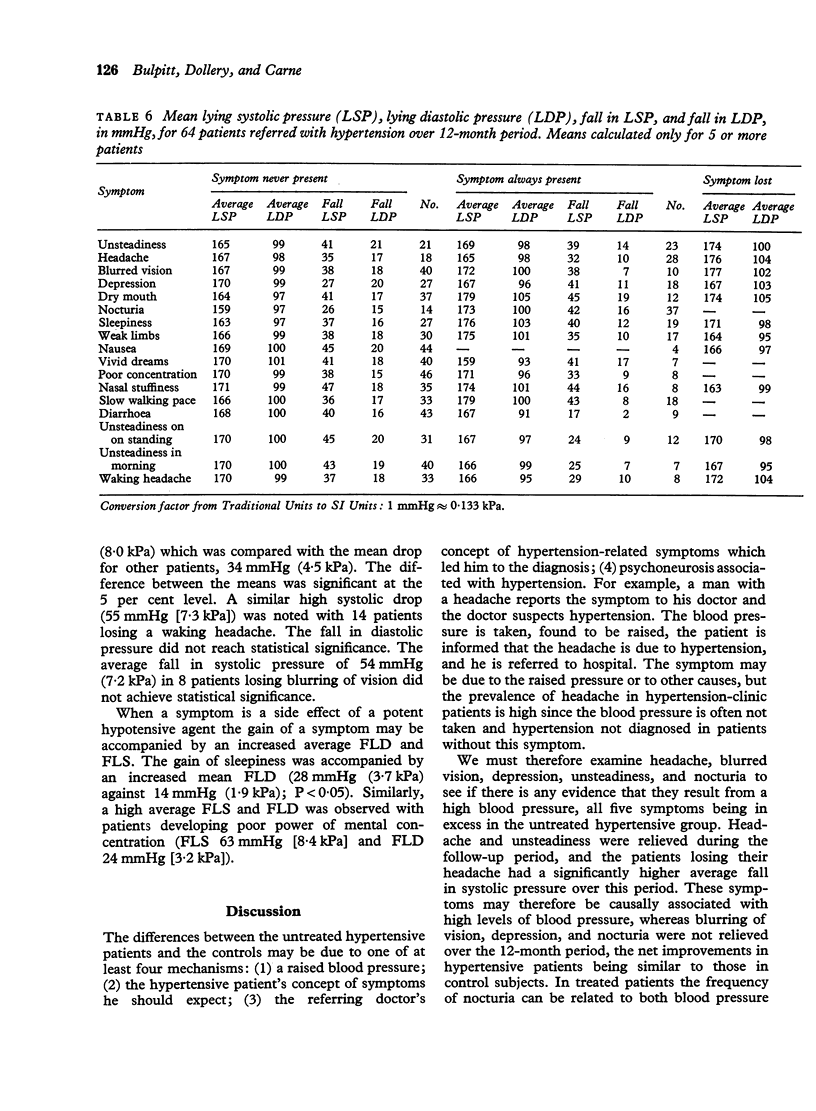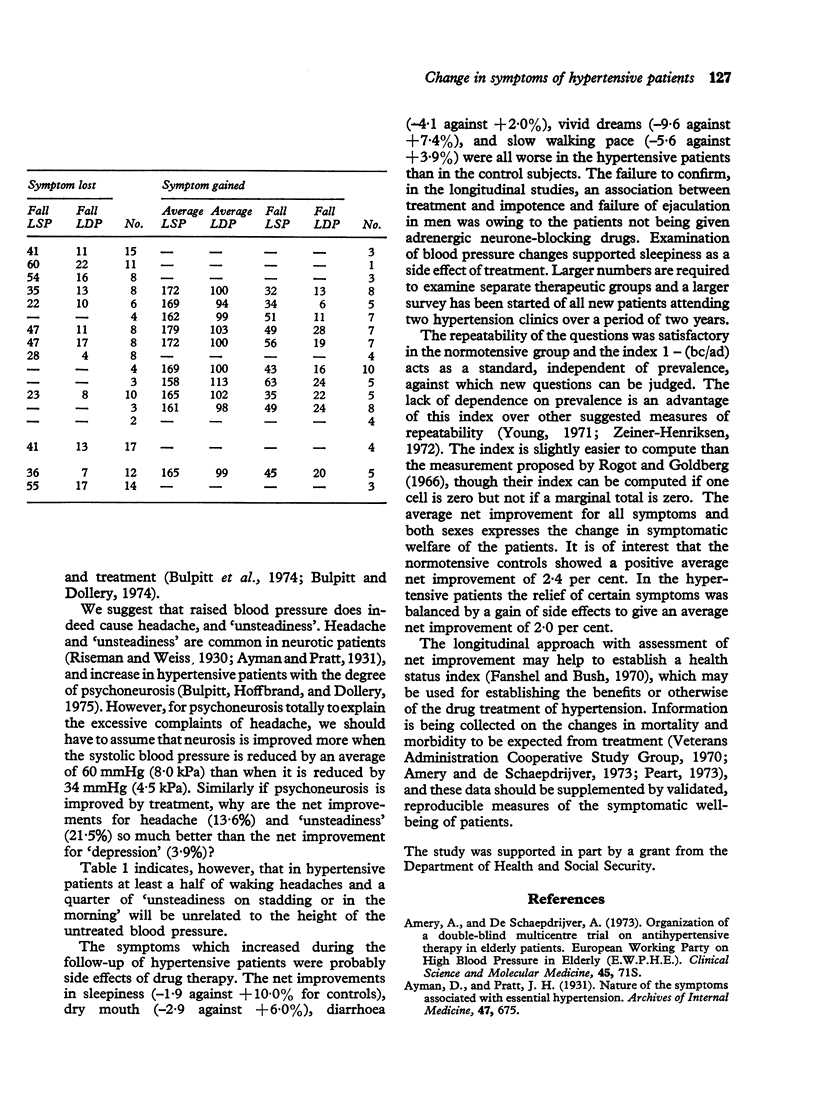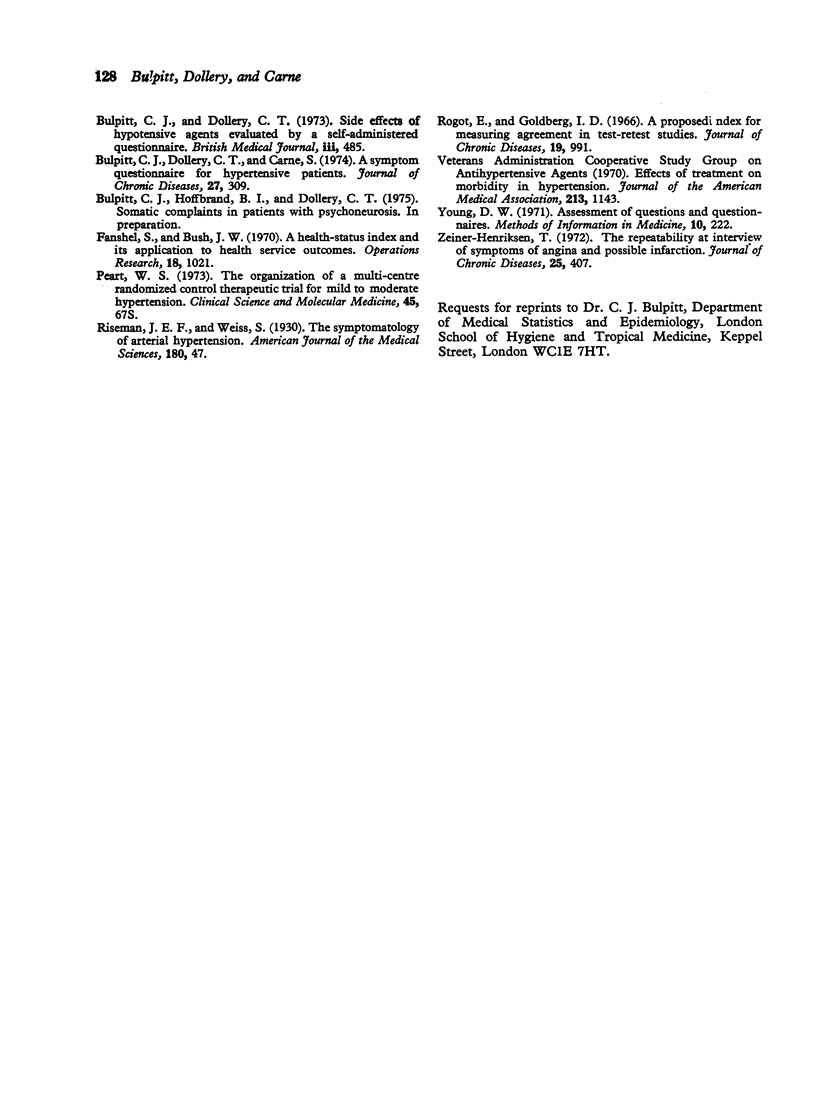Abstract
At their first visit to a hospital clinic 178 patients referred with a diagnosis of hypertension were given a self-administered questionnaire. They received a similar questionnaire 12 months later. Of the 178 patients 99 were not initially on treatment. Similarly 78 normotensive subjects were drawn randomly from the local population and sent a second questionnaire 10 months later. The symptoms at the first visit of the normotensive controls, the untreated hypertensive patients, and 477 patients on long-term treatment in the hypertension clinic were compared. Treated and untreated hypertensive patients complained more of nocturia and also of unsteadiness either on standing or in the morning. Treated hypertensives complained more of sleepiness, dry mouth, diarrhoea, and, in men, impotence and failure of ejaculation. Similarly, untreated hypertensives complained of excessive depression, blurred vision, and waking headache. Fifty-five of the normotensive subjects and 110 of the newly referred hypertensive patients responded to the second questionnaire. The proportions losing and gaining symptoms were calculated together with the proportions always complaining and never complaining of a symptom. Hypertensive patients tended to lose the complaints of unsteadiness and headache but to gain the symptoms of vivid dreams, a slow walking pace, and diarrhoea. The net improvement for a symptom was defined as the excess of patients who lost a symptom over those who gained the symptom, expressed as a percentage. Over the follow-up period the control subjects had a net improvement averaged over 14 symptoms of +2-4 per cent. A similar result was obtained for the hypertensive patients of +2-0 per cent, the symptoms lost being balanced by those gained. The changes in symptoms with time were related to the changes in blood pressure and it is suggested that only headache, 'unsteadiness, lightheadedness, or faintness' and nocturia can actually result from raised blood pressure and then only in a proportion of patients complaining of these symptoms.
Full text
PDF